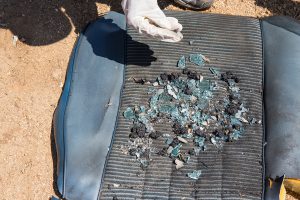Forensic Investigations Matter For Civil Cases Too
 Michael Babboni
Personal Injury
Thanks to the proliferation of broadcasts for both reality TV shows and dramas on television, many Americans are now familiar—and accepting—of the concept of forensic experts. Usually when the word “forensic” comes up in discussion about legal matters, this conjures images of a murder case, with scientific experts using their knowledge and equipment to come up with the evidence that puts criminals in jail. After all, you may be able to tell a lie confidently, but your fingerprints or DNA at the scene of a crime is proof that can’t be argued with.
Michael Babboni
Personal Injury
Thanks to the proliferation of broadcasts for both reality TV shows and dramas on television, many Americans are now familiar—and accepting—of the concept of forensic experts. Usually when the word “forensic” comes up in discussion about legal matters, this conjures images of a murder case, with scientific experts using their knowledge and equipment to come up with the evidence that puts criminals in jail. After all, you may be able to tell a lie confidently, but your fingerprints or DNA at the scene of a crime is proof that can’t be argued with.What you may not be aware of is that forensic investigation can play an important role in resolving a civil case like a personal injury lawsuit. But how does it work in this situation?
Evidence Is Everything
The purpose of a personal injury lawsuit, is, just like a murder trial, to convince a jury that there is an appropriate action to take. Here however, instead of a verdict of innocent or guilty, based on whether someone committed an act of murder, the verdict is to award or not award the money that a plaintiff is suing for, based on being injured by someone else’s negligence of incompetence.
In both cases, it’s not simply enough to make a persuasive case based on eloquent language. Facts matter more than anything else, and it is by providing good evidence and good information that a jury can eventually arrive at a just conclusion.
Forensics Find The Truth
The discipline of forensics means, roughly, any branch of study that has already been cleared for presentation and admission in court as evidence. While some methods of investigation, like fingerprints, took very little time to be considered an admissible—and essential—part of investigation, more complex techniques, such as DNA profiling took more time before they were finally admitted in court as viable parts of forensic investigation.
In the same way, forensic engineering and the forensic engineers themselves can be an important part of a personal injury case. When a car accident occurs, or a defective product injures someone, it takes a qualified expert, with a professional opinion can be used in court, to investigate the incidence and arrive at a conclusion.
Forensic engineers provide the knowledge and credibility to examine relevant aspects of a case, such as the damage to a car, or the design of a product, and explain exactly how and why these factors could injure the plaintiff without the plaintiff being at fault. They bring scientific research and findings to a personal injury case, so that it’s not just one person’s word against another, but the presentation of cold, hard, irrefutable scientific fact that cannot be discounted or ignored.
Good legal representation isn’t just about knowing the ins and outs of courtroom protocol, it is also about bringing in the experts that can show a jury exactly how a person has been injured and why it is unfair. With the forensics engineer digging up the truth, a persuasive personal injury case can be turned into one with undeniable evidence and an inevitable conclusion for justice and proper financial compensation.
